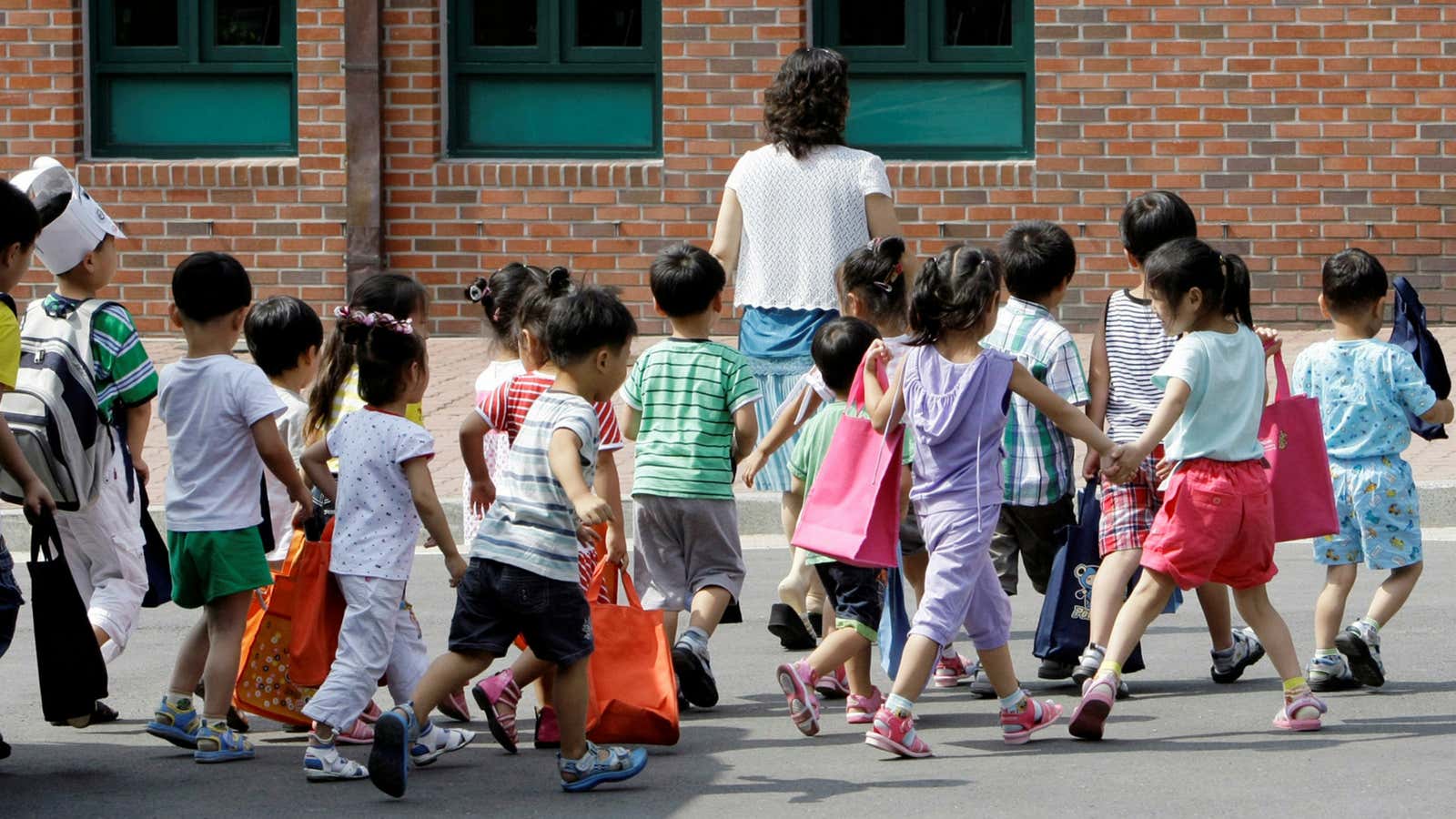Park Geun-hye, the daughter of a former military dictator who won South Korea’s presidential elections this month as the conservative candidate, won’t take office for another two months. But today she got a start on her promises to expand social welfare programs.
Both major parties agree on the need for more social welfare; the last-minute wrangling to pass the revised budget for the new year that starts at midnight was over the issue of funding, with Park’s New Frontier Party pushing for issuance of more government bonds and the Democratic United Party demanding increased taxes on high earners.
South Korea proudly became the first former aid recipient to join the Organization for Economic Cooperation and Development, the club for rich countries, in 2009, but has since been slightly obsessed with how it measures up. Social welfare is a weak area: A state-run think tank reported last week that the country’s welfare spending to gross domestic product ratio is the second-lowest among the OECD’s 30 members and, at 9.4%, less than half the group’s 22.1% average.
Park, a single woman who has no children, has championed a 1.4 trillion won ($1.3 billion) expansion of government funding for childcare for all children up to age 5. The current program of aid runs through age 2 and help is linked to income. The new support is a central element of the revised budget and covers expenses both for parents raising children at home and those using daycare centers.
South Korea has the lowest fertility rate in the OECD and its working age population is set to start declining in 2018. Easing the burden of raising kids could convince families to have a first or additional child.
But it may not be enough in this competitive society. Another report last week from a state think tank showed that on top of preschool, 40% of 1-year old children are enrolled in costly cram schools or private tutoring (and 17% of those under 1), with the ratio rising to 80% among 3-year-olds.
“I’m not sure whether these classes will all end up helping my child’s education, but I have to enroll my child in more classes because everyone else is doing it,” said one parent. “With so much money going on private crammers already, I’m worried about how I can manage to afford them later on.”
The gender gap is another complication. The recent OECD report on South Korea’s gender gap (link above) concluded “as long as workplace cultures involve long working hours, socializing after work, and a seniority-based promotion and payment system which punishes women for leaving their job on childbirth, social policy reform will have limited effect” on advancing women’s role in the workplace.
Some conservatives also think Park has her priorities in the wrong order, arguing that the rapid aging of the population will eventually give South Korea Greek-style fiscal problems if spending isn’t reined in and that people don’t really want free childcare. This budget could finally test the arguments on both sides.
